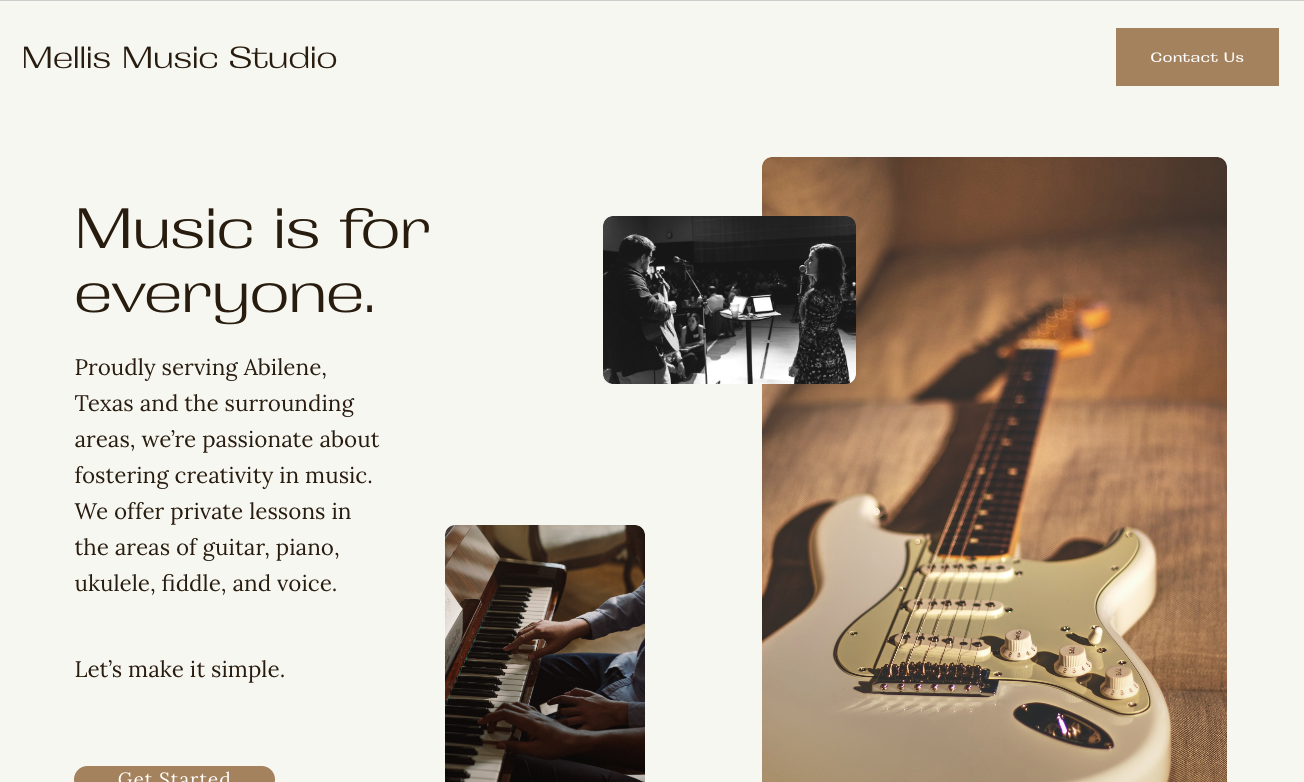Singing is a wonderful form of artistic expression that has the power to connect people through the beauty of music. Whether you’re an aspiring vocalist looking to develop your singing abilities or a seasoned singer seeking to enhance your vocal range, finding the right singing and voice lesson can make all the difference. If you’re located in or around Abilene, Texas, then you’re in luck, as there are plenty of excellent singing and voice lesson options available in the area.
In this article, we’ll be taking a closer look at the ten best singing and voice lesson options near Abilene, Texas. We’ll explore each program’s unique features, pricing options, and teaching methods to help you find the perfect fit for your needs.
Whether you’re interested in private lessons or group sessions, beginner or advanced classes, classical or contemporary training, our list will provide you with a diverse range of options to choose from. By the end of this article, you’ll be equipped with all the information you need to make an informed decision on the best singing and voice lesson option for you.
So, if you’re ready to take your singing abilities to the next level, let’s dive in and explore the ten best singing and voice lesson options near Abilene, Texas.
1. Mellis Music Studio

Website: http://www.mellismusicstudio.com/
Address: 1217 E South 11th St, Abilene, TX 79602
Mellis Music Studio is a well-established music school located in Abilene, Texas, that provides exceptional vocal training to students of all ages and skill levels. The studio is run by experienced vocal coach, Susan Mellis, who has over two decades of experience in the music industry. Susan’s teaching methods focus on building a strong foundation of proper vocal technique, breath control, and stage performance skills.
At Mellis Music Studio, students can choose from a variety of programs, including private voice lessons, audition coaching, and group classes. The studio’s flexible scheduling options make it easy for students to fit lessons into their busy schedules, and their affordable pricing ensures that quality vocal training is accessible to all.
The studio’s website provides a wealth of information on their programs, pricing, and policies, making it easy for prospective students to make informed decisions about their musical education. With its commitment to excellence and personalized attention, Mellis Music Studio is a top choice for anyone looking for exceptional vocal training in Abilene, Texas.
Tips for Learning How to Sing
Singing is a wonderful way to express oneself and connect with others through music. Whether you’re an aspiring vocalist or a seasoned performer, there is always room for growth and improvement when it comes to your singing abilities. However, learning how to sing can be a challenging and intimidating process, especially if you’re just starting out. In this article, we will provide you with some tips and strategies to help you develop your singing skills and achieve your goals as a singer.
Warm up before singing
Just like athletes need to warm up before a game or a workout, singers also need to warm up their vocal cords before singing. Warming up helps to prevent strain and injury, and prepares your voice for the demands of singing. Start with some simple vocal exercises, such as lip trills, humming, or sirens. These exercises help to loosen up your vocal cords and get your voice ready for singing. Gradually increase the intensity and duration of your warm-up exercises as you become more comfortable with them.
Practice proper breathing technique
Proper breathing technique is crucial for singing well. When you sing, your vocal cords vibrate, and the air passing through them creates the sound of your voice. If you don’t have enough air, your voice will sound weak and strained. To sing with power and control, you need to learn how to breathe deeply and effectively. When you inhale, your stomach should expand, not your chest. This allows you to take in more air and support your voice. As you exhale, engage your abdominal muscles and control the flow of air, rather than letting it all out at once.
Find your vocal range
Every singer has a unique vocal range, which refers to the range of notes they can comfortably sing. It’s important to know your vocal range so that you can choose songs that suit your voice and avoid straining your vocal cords. You can find your vocal range by singing scales and gradually moving up or down in pitch until you reach the highest and lowest notes you can sing comfortably. Once you know your vocal range, you can work on expanding it over time by practicing exercises that challenge you to sing higher or lower notes.
Practice consistently
Like any skill, singing requires consistent practice to improve. Make a habit of practicing singing for a set amount of time each day or several times a week. This helps to build muscle memory and develop your vocal abilities over time. Consistent practice also helps to build confidence and reduce anxiety when performing. As you progress, increase the difficulty of your exercises and challenge yourself to try new songs or genres.
Record and listen to yourself
Recording your singing and listening to it can be a powerful tool for improving your skills. It allows you to hear your voice objectively and identify areas for improvement. Pay attention to things like pitch accuracy, tone quality, and breath control. Take notes on what you need to work on and make adjustments accordingly. Recording yourself also allows you to track your progress over time and see how far you’ve come.
Seek feedback from others
Getting feedback from others, whether it’s a vocal coach or a trusted friend, can be invaluable for improving your singing. They can offer objective critiques and identify areas where you need to improve. Be open to feedback and willing to make changes to your technique or approach. Remember that constructive criticism is an opportunity for growth and improvement, not a reflection of your worth as a singer.
Experiment with different genres and styles
While it’s important to develop your own unique style as a singer, it’s also valuable to explore different genres and styles of music. This helps you to develop a diverse range of skills and techniques, and broaden your musical knowledge. Try singing songs from different genres, such as jazz, pop, or rock, and experiment with different.

